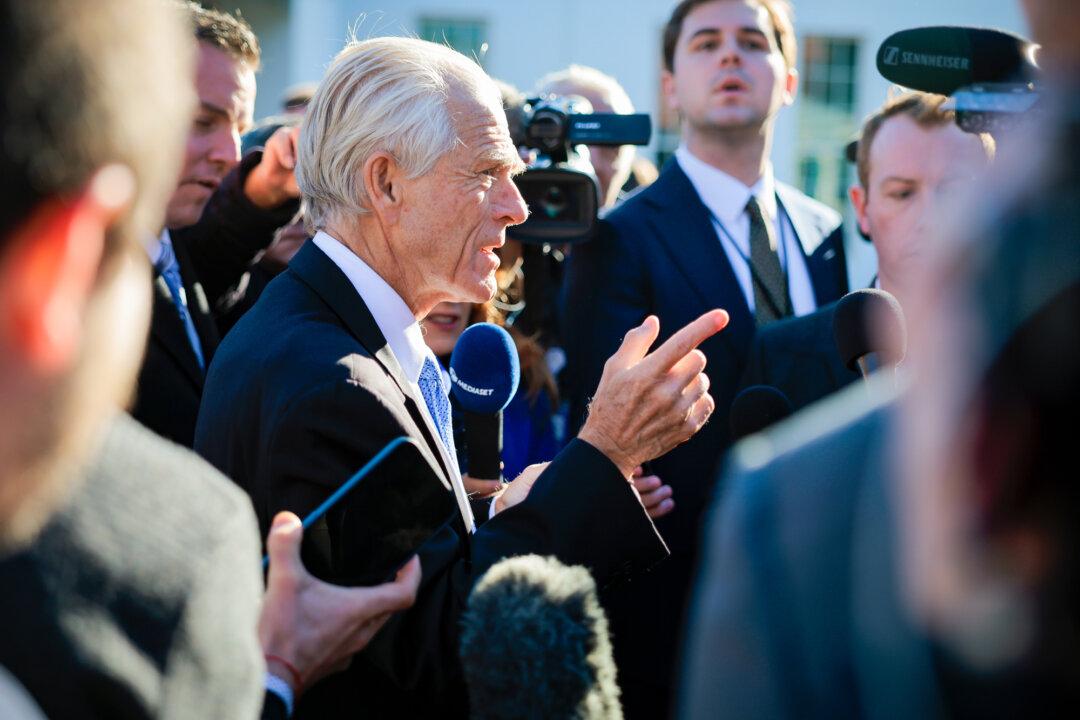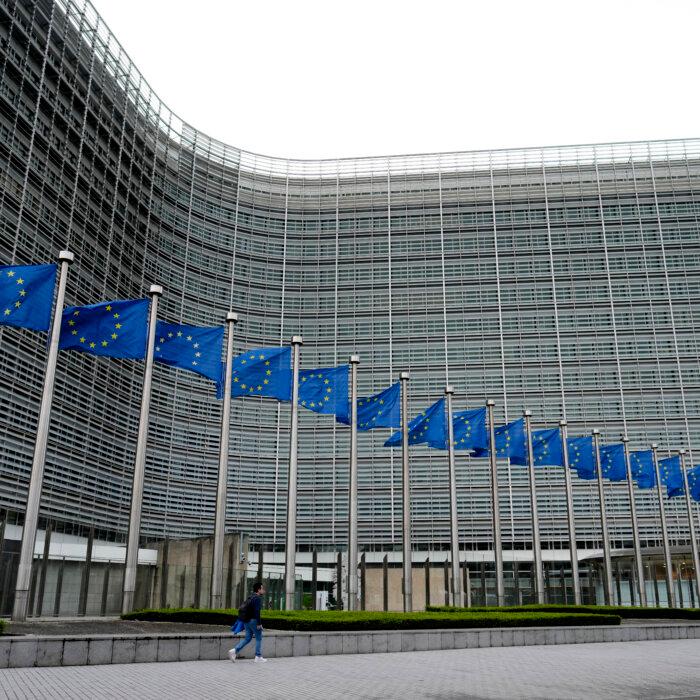The European Union said on April 9 that it will not make any concessions on its digital and technology rules as part of any trade negotiations.
“These tools include currency manipulation, value added tax distortions, dumping, export subsidies, state-owned enterprises, IP theft, discriminatory product standards, quotas, bans, opaque licensing regimes, burdensome customs procedures, data localisation mandates and, increasingly, the use of ‘lawfare’ in places like the EU to target America’s largest tech firms,” Navarro stated.
“And we will not be conflating the two in our negotiations with the U.S.”
The accusation comes as the 27-nation bloc faces 25 percent import tariffs on steel and aluminum and cars as well as the new broader tariffs of 20 percent for almost all other goods under Trump’s policy to apply reciprocal tariffs to countries he says impose high barriers to U.S. imports.
The Digital Services Act (DSA) and the Digital Markets Act (DMA) form a single set of rules under the Digital Services Act package that apply across the EU.
The former regulates the gatekeeper power of the largest digital companies, while the latter requires social media platforms to remove illegal content, conduct risk assessments, prevent illegal and harmful activities online, and curb the spread of “disinformation.”
“If we do not see willingness to cooperate, we will not shy away from imposing the fines identified by the law.”
Meta reiterated its criticism of the imminent decisions.
‘Centralized’
The EU’s centralized decision-making and legal framework make it difficult for member states to alter or retract the Digital Services Act, according to German MEP Christine Anderson, who is a politician for the populist conservative party Alternative for Germany.Anderson previously told The Epoch Times that the European Parliament itself does not propose new legislation; it can only pass it, which limits what politicians can do.
The European Parliament and European Council work together to adopt or amend proposed laws, but the European Commission is the primary proposer.
“What we are doing is, we’re pretty much passing resolution,” she said.
She characterized this as “passing a beggar’s letter,” where MEPs write to the commission and say, “Well, it would be nice if you could do this, that, and the other.”
“But they don’t need to do any of that. So the commission is the government,” she said.
She said they’re “the only ones” who can initiate legislation.







